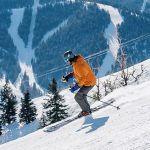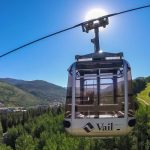American Whitewater filed suit today to restore the publics ability to paddle the headwaters region of the 52-mile Wild and Scenic Chattooga River. Other plaintiffs in the case include The American Canoe Association, Georgia Canoeing Association, Atlanta Whitewater Club, Western Carolina Paddlers, and the Foothills Paddling Club, along with three individuals.
According to reports files on AW's website, the suit is in response to the extension of a 1976 prohibition by the United States Forest Service on “hand-powered floating” down the uppermost 21 miles of the Chattooga River. This section of the Chattooga, which flows through North Carolina and then forms the border between South Carolina and Georgia, is believed to be the only river in the United States managed by the USFS where private, non-motorized boating is banned.
In the suit, the paddling groups allege that the boating ban violates several federal laws including the Wilderness Act and the Wild and Scenic Rivers Act, both of which fully support the publics ability to float rivers in protected wilderness areas.
“Not only does the boating ban violate federal law, it is bad natural resource management,” notes Kevin Colburn, American Whitewaters National Stewardship Director. “Recreational paddling is a specific use protected by the Wilderness Act, unlike off-road vehicles and other non-conforming uses currently zoned from the headwaters. We are challenging a precedent that could allow wilderness-compliant uses like paddling, hiking and angling to be segregated from treasured public lands with no basis.”
For over a decade, American Whitewater has been seeking a collaborative solution to this management anomaly, and to date, Forest Service officials have been unable to produce any evidence that private, hand-powered boating causes any detriment to the river corridor. Just last year, the Chief of the USFS supported American Whitewaters position and found that there was no basis for the ban and that it violates federal law. Despite the Chiefs decision and more than a year later, all hand-powered boating remains prohibited on the Chattooga headwaters.
The lawsuit, filed in the United States District Court for the Northern District of Georgia, seeks to prevent the USFS from implementing any further floating prohibition on the Chattooga headwaters, according to American Whitewater attorney Robert Mitchell of Alston & Bird LLP. Also representing the coalition, Nathan Galbreath of Patton Boggs LLP adds “Forest Service management must conform to applicable federal laws. It is inappropriate to deny paddlers access to the upper Chattooga River after Congress specifically protected that stretch of river for the use and benefit of private paddlers.”
Mark Singleton, American Whitewaters Executive Director, stresses that the lawsuit is aimed at strengthening an otherwise collaborative relationship with the agency. “We value the Forest Service as a partner on river stewardship issues across the country. However, in this case, the agency is breaking several very important laws that were designed to protect and enhance enjoyment of these special corridors.”
“The incredible recent achievements we share with the USFS on the nearby Cheoah and Nantahala rivers are evidence of just how inconsistent the management of the Chattooga headwaters really is. We are simply seeking responsible, nationally consistent river management,” summarized Singleton.















